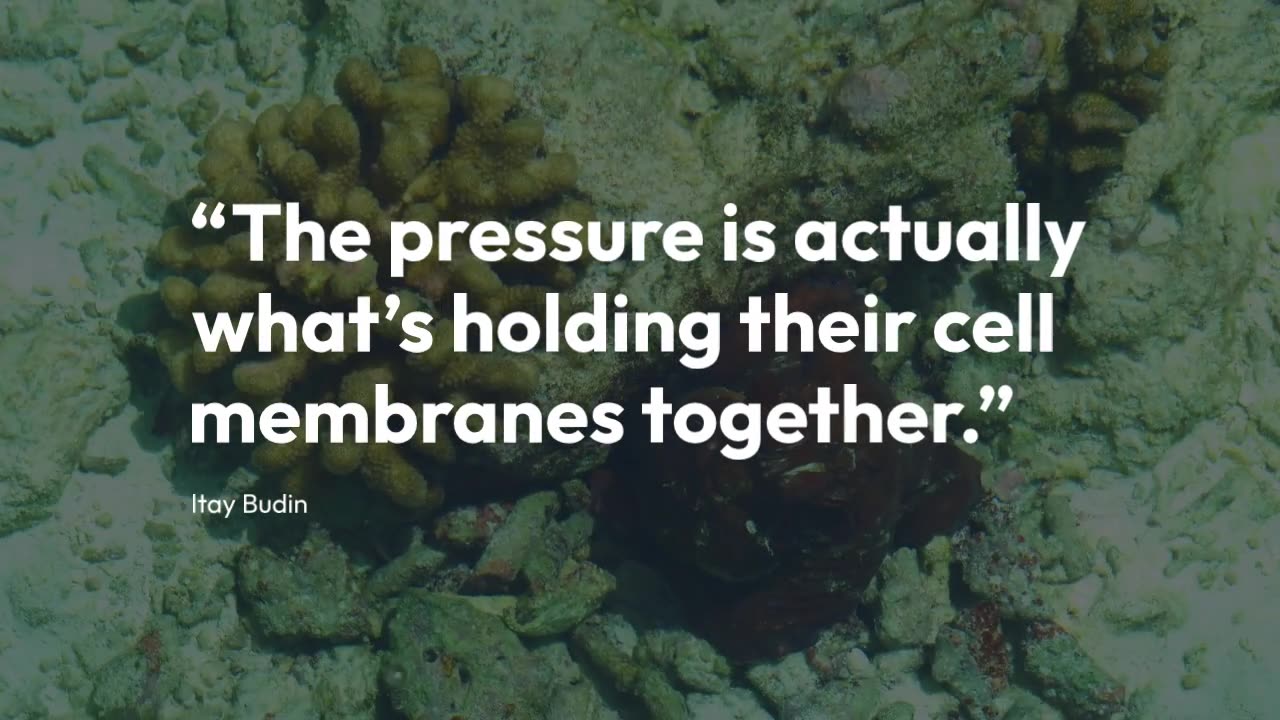Premium Only Content

Survival at Extreme Depths: How Comb Jellies Defy Ocean Pressure
UC San Diego researchers discovered that ctenophores in the deep sea have unique lipid adaptations, called “homeocurvature,” allowing survival in high pressures. These findings might help understand diseases like Alzheimer’s, where similar lipids play a role.
The deep sea is one of the most hostile environments on earth. The temperature is freezing cold, there is no light, and the extreme pressure can crush human beings. The animals living at these depths have developed specialized biophysical adaptations to survive these harsh conditions.
To investigate these adaptations and how they developed, a team of researchers led by University of California San Diego Assistant Professor of Chemistry and Biochemistry Itay Budin studied the cell membranes of ctenophores, also known as comb jellies. In their study, recently published in Science, they discovered ctenophores have unique lipid structures that allow them to live under intense pressure.
-
 LIVE
LIVE
SpartakusLIVE
3 hours agoTiger Blood RESTOCKED and 30% off w/ code SPARTAKUS30
517 watching -
 24:58
24:58
Law&Crime
4 hours agoSecond Note Leaves Disturbing Clues in New York City Killings
421 -
 LIVE
LIVE
Badlands Media
19 hours agoAltered State S3 Ep. 39
2,129 watching -
 LIVE
LIVE
Due Dissidence
9 hours agoCharlie Kirk's GAZA LIES, Caitlin Clark Stalker, Palantir Goes Hollywood - w/ Kyle Matovcik | TMWS
369 watching -
 UPCOMING
UPCOMING
I_Came_With_Fire_Podcast
10 hours agoAmerica First, Trump Threatens China, Your Friendly Neighborhood Illegal, EPA Gets a "W"
237 -
 LIVE
LIVE
Geeks + Gamers
1 hour agoGeeks+Gamers Play- MARIO KART WORLD
102 watching -
 8:28:19
8:28:19
Dr Disrespect
10 hours ago🔴LIVE - DR DISRESPECT - BATTLEFIELD 1 - FULL GAME
139K7 -
 1:39:26
1:39:26
Glenn Greenwald
5 hours agoStephen Miller's False Denials About Trump's Campus "Hate Speech" Codes; Sohrab Ahmari on the MAGA Splits Over Antitrust, Foreign Wars, and More | SYSTEM UPDATE #495
86.8K29 -
 LIVE
LIVE
Omar Elattar
6 hours agoThe $300M CEO: "The One Skill That Made Me Rich In 15 Different Countries!"
68 watching -
 LIVE
LIVE
xXFadedAngelXx
1 hour ago180 HOURGLASS PULL! Wisdom of Sea and Sky (Pokemon TCG Pocket) Then some RL with Meditayte later
14 watching